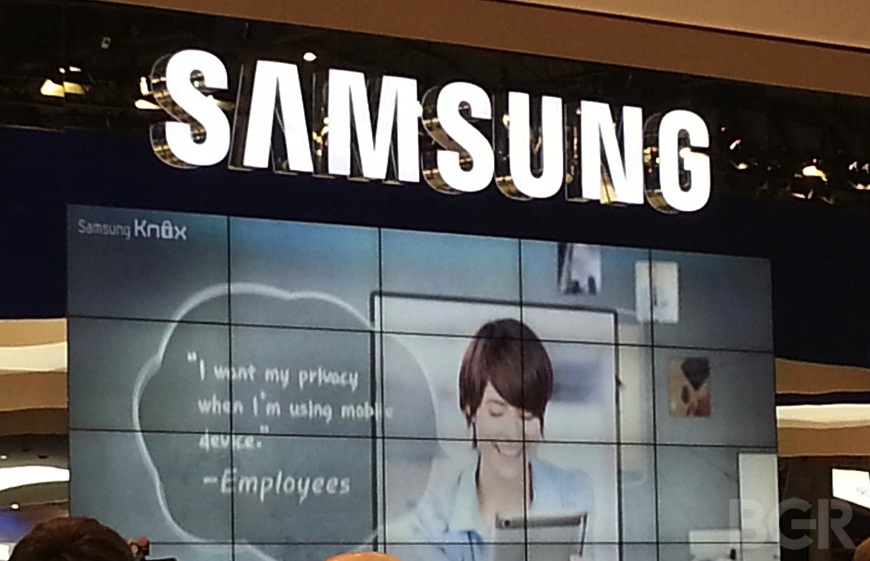Let there be no doubt: Samsung (005930) is the king of Android devices at the moment. Not only did the South Korean manufacturer account for 42% of all Android devices shipped last year, but it is also the only Android vendor to consistently make a profit selling smartphones. This dominance has given the company both the resources and the confidence to aggressively expand its reach into the enterprise world and to push its devices as productivity tools in new realms such as sales and education. But while Samsung’s emergence over the past year has been absolutely terrific for the company itself, I have mixed feelings when it comes to its impact on Android as a whole.
First, the good side of Samsung’s success: it’s great to see a company make lots of money from selling Android devices and helping to push the platform into more hands. I typically don’t go for hipster arguments that things are always better before they become popular, and I think it’s great to see lots of people enjoying a platform that I’ve been a fan of for years now. And given that BlackBerry’s (BBRY) decline at the start of the decade left iOS badly in need of a competitor, I’m happy to see that Android rose up to fill the void largely thanks to Samsung.
Another benefit to Samsung’s rise is that it has provided a benchmark that other Android vendors must aspire to meet if they want to be successful. One of the downsides of Android over its first couple of years of existence was that for all its popularity, it delivered wildly different user experiences depending on both the quality of the device it ran on and the quality of the OEM skin it used. What Samsung has done is to deliver a consistent user experience with the Galaxy S III and the Galaxy Note that has helped stabilize the brand and has given users a certain expectation for how Android devices are supposed to perform.
All that said, there are a couple of things that concern me about Samsung’s rapid ascent to the top of the Android heap.
First, the entire point of the Android project wasn’t to have only one manufacturer hauling in enormous profits while all its rivals either break even or take losses. If we’re being honest, the point of Android was to help Google (GOOG) ensure that its web services such as Gmail, Maps and YouTube dominated the mobile web. This is why the company made it open source so that many different OEMs would try their hand at making Android devices and would be in a constant battle with one another for the top position in the ecosystem.
While this arrangement certainly is a better deal for Google than it is for the OEMs, it also has the side benefit of being a good deal for consumers who get to enjoy a truly competitive market that encourages creativity from OEMs to differentiate themselves from the herd. But if only one vendor is making money from Android and is potentially discouraging others from entering the market, then that complicates things.
Google seems to know that, which is why it’s taking steps to limit Samsung’s influence over the Android market by developing its own “X Phone” with its Motorola Mobility division. All the same, if smaller vendors see that you need to have the resources of either Samsung or Google to make money with Android, they might shrug their shoulders and look elsewhere toward Windows Phone, Firefox OS or even BlackBerry 10.
The other reason I have mixed feelings on Samsung’s dominant position in the Android market is simply that I don’t think its smartphones are all that great. Don’t get me wrong, I think they’re very good devices that do a lot of things well, but I actually prefer both HTC’s (2498) new One smartphone and the LG (066570) Optimus G to either the Galaxy S III or the Note II.
My issue with Samsung phones is that they’re nice but not nice enough to be the only profitable Android devices on the market at the moment. I’d be less bothered by Samsung’s rule over the Android world if its devices were simply head-and-shoulders better than everyone else’s in the same way that Apple’s (AAPL) iPad simply wiped the floor with rival tablets over the first two years of its existence. But as things stand now, I’d prefer to see the Android market be more competitive than it has been for the past year.
In the end, though, a return to the days when Samsung, HTC and LG could all turn reasonable profits from Android is likely not in the cards. Samsung has the scale, the distribution channels and the marketing power to crush its rivals in the Android world for the foreseeable future and Google is the only company right now with the resources to curb it.
Something tells me that’s not what Google had in mind when it launched Android more than five years ago.[bgr-post-bug]






